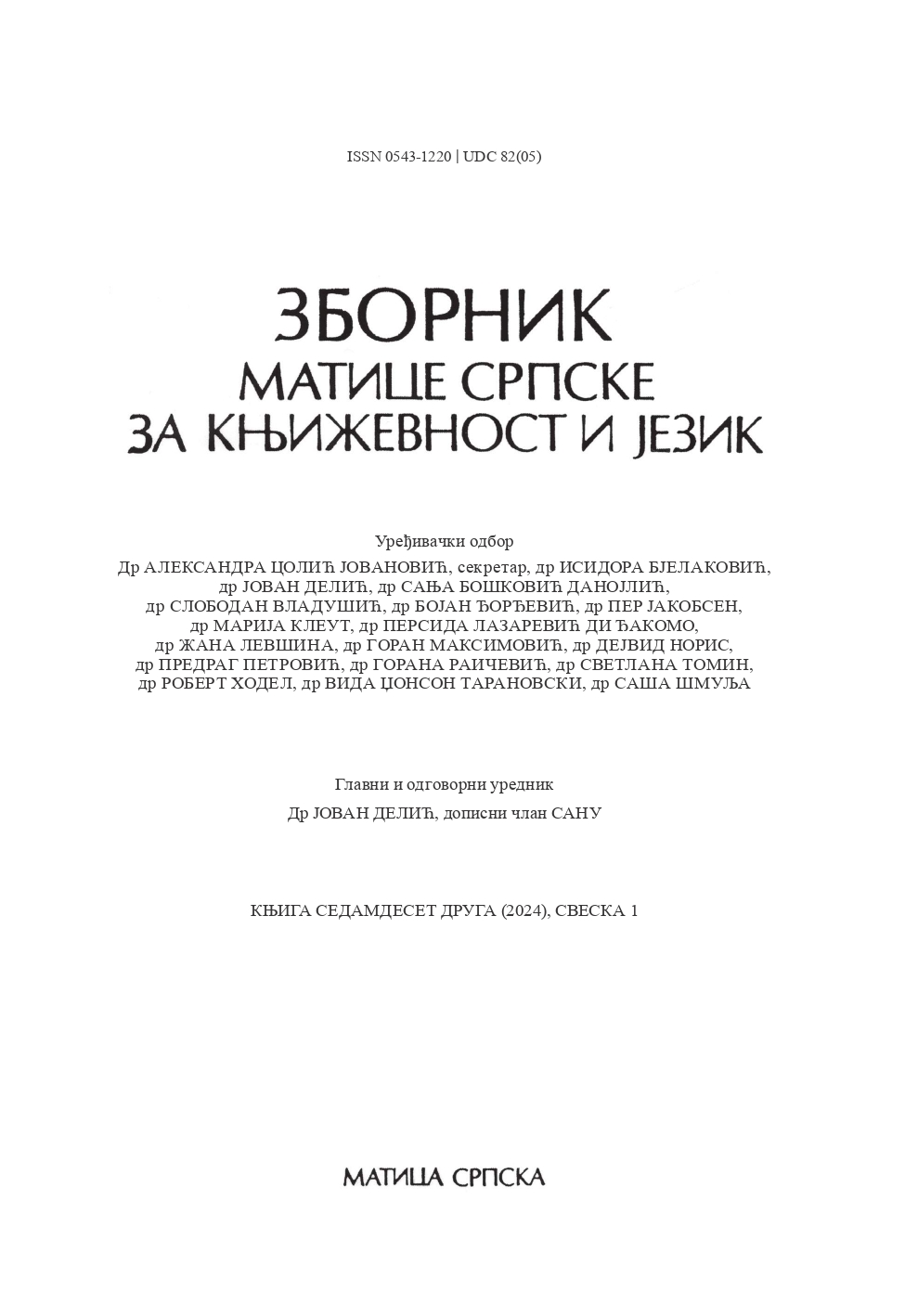ИСТОРИЈА, КУЛТУРА, СТВАРНОСТ И ИМАГИНАЦИЈА: КАРАКТЕРИСТИКЕ СРПСКЕ КЊИЖЕВНОСТИ ПОСЛЕ ПАДА БЕРЛИНСКОГ ЗИДА (I)
HISTORY, CULTURE, REALITY AND IMAGINATION: CHARACTERISTICS OF SERBIAN LITERATURE AFTER THE FALL OF THE BERLIN WALL (I)
Author(s): Mihajlo PantićSubject(s): Language and Literature Studies, Studies of Literature, Serbian Literature, Theory of Literature, Sociology of Literature
Published by: Матица српска
Keywords: Serbian literature; social function of literature; poetic paradigm; literature and reality; art market; fictionalization; detraumatization
Summary/Abstract: The paper investigates the basic characteristics of and changes in Serbian literature after the fall of the Berlin Wall, which includes the weakening and partial incomprehensibility of its social function. The paper also points to the instability and fluency of poetic paradigms, the role of art market, fictionalization of reality, more of an individual than collective meaning of the very act of writing, domination of novels, as well as the process of creation which is fundamentally motivated by the detraumatization of experiences acquired in the period marked by the change of the social system, war and a longterm crisis. It is concluded that the general social importance of literature is problematic and relativized today, but that its individual significance is undeniable. Even though literature itself is at the mercy of whims and an inverted logic of the market which favours the widely spread, mass produced, global stereotypes, authentic literary value and aesthetized linguistic imaginativity persists despite everything. The most valuable part of literature written in the previous period is signified by a persistence to sketch a personal and collective identity, fictionalize memory and detraumatize accumulated experience.
Journal: Зборник Матице српске за књижевност и језик
- Issue Year: 72/2024
- Issue No: 1
- Page Range: 63-77
- Page Count: 15
- Language: Serbian

